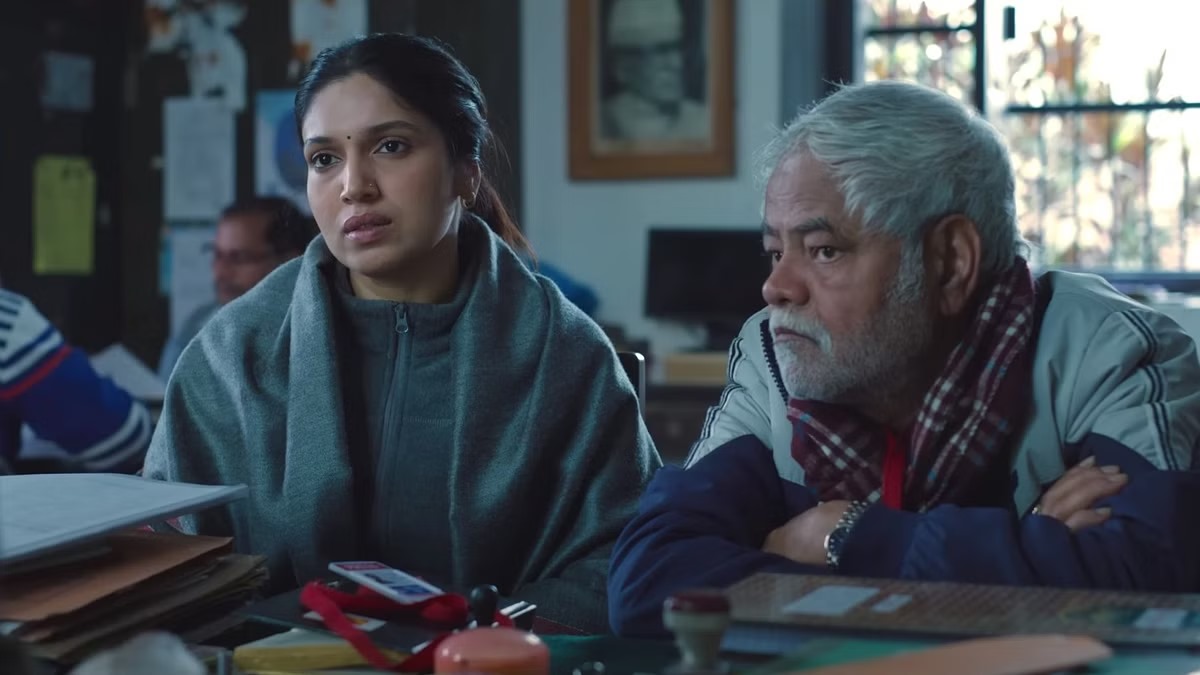CAST: Bhumi Pednekar, Sanjay Mishra, Aditya Srivastava, Sai Tamhankar, Surya Sharma
DIRECTOR: Pulkit
Streams on Netflix
Creating a film that addresses the delicate issue of child sexual abuse without overwhelming the audience with the grim realities of a society that enables predators, silences victims, and often lets perpetrators off the hook is a challenging task. “Bhakshak,” inspired by the true story of widespread abuse in a Bihar shelter home in Muzaffarpur, tackles these issues head-on.
However, the film’s heavy-handed approach, which begins with a shocking incident and concludes with a didactic monologue, results in a narrative that is both less impactful and more didactic than it ought to be.
In the story, Vaishali Singh (Pednekar), a local video journalist, along with her cameraman Bhaskar Sinha (Mishra), stumbles upon alarming evidence concerning a girls’ shelter in Munnawarpur—a name thinly veiled to represent the actual location. Initially hesitant, Vaishali’s investigative zeal is ignited, leading her to embark on a thorough inquiry.
This journey primarily involves visiting various state-operated shelters across the region and posing the tough questions that others shy away from.
The narrative centers around the reprehensible Bansi Sahu (Srivastava), who operates the shelter with the assistance of a sinister group consisting of a warden-like figure who also exploits the girls, and two ruthless men who maintain order and dispose of the bodies of those who become troublesome. These details aren’t spoilers, as they directly reflect the events of the real-life case. While a high-ranking female police officer (Tamhankar) offers some support, the brunt of the investigative work falls on Vaishali, highlighting the film’s central focus on her struggle.
Vaishali’s personal life, particularly her conflicts with an irate husband (Sharma) who criticizes her for working late, adds a layer to the story by illustrating the challenges women face in pursuing their passions.
Although these scenes offer a break from the story’s grimness, they also extend the film’s duration unnecessarily. Pednekar delivers a sincere performance, striving to bring authenticity to her role, yet the film’s straightforward narrative and lack of subtlety hinder her efforts. The technique of breaking the fourth wall and admonishing the audience for their indifference might not be the most effective way to engage viewers or convey the film’s message.






